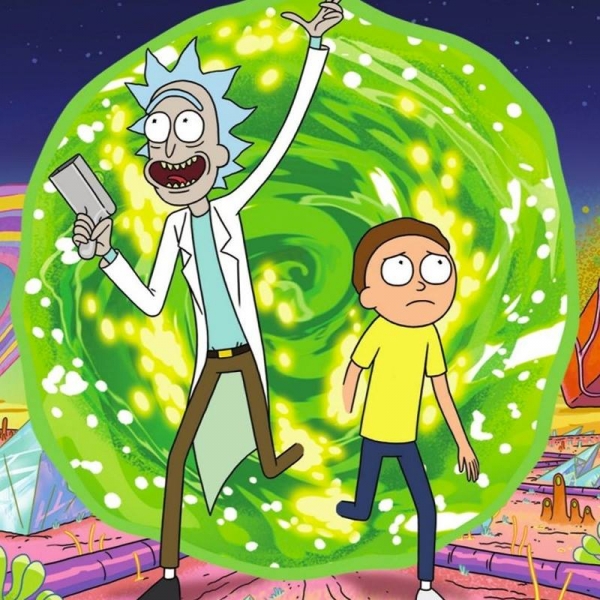#TypesTuesday – Different character types at odds with each other create plot
Continue reading#TypesTuesday – Doctor Who: 1 Character, 9 Types
#TypesTuesday – Doctor Who Is One Character Who Has Been Every Type
Continue readingRepetition and Reflection
It turns out that just putting in hours and hours at your chosen writing work is not enough; the only way to get better is to make sure you’re devoting those hours to what the researchers call “deliberate practice.”
Continue readingAvatar – Controversy Rages
As Avatar moves closer to breaking Titantic’s number one place in box office history, controversy has raged in the press and elsewhere about the film, about what James Cameron was trying to say, about the supposed underlying political, social or moral agendas at work in the film and generally about what the film means and why it is so popular. Here are some interesting links.
Continue readingVulnerability Scenes
Everyone who has heard me speak or teach knows how fundamental vulnerability is to making a movie or television show memorable. The way an audience BONDS with a character is through scenes where the character is vulnerable. Here are some of my favorites– what are yours?
Continue readingTerminator Salvation – Idealism vs. Conscience
 Terminator Salvation is a solid satisfying summer hit. It’s also a great illustration of the difference between a Power of Idealism character, Marcus Wright (played by Sam Worthington) and a Power of Conscience character, John Connor (played by Christian Bale). Although both men (and both Character Types) are honorable, how each views honor is different. Each man’s emotional journey therefore is distinct.
Terminator Salvation is a solid satisfying summer hit. It’s also a great illustration of the difference between a Power of Idealism character, Marcus Wright (played by Sam Worthington) and a Power of Conscience character, John Connor (played by Christian Bale). Although both men (and both Character Types) are honorable, how each views honor is different. Each man’s emotional journey therefore is distinct.
We first meet a morose Marcus Wright on death row. Dr Serena Kogan (played by Helena Bonham Carter), a researcher who is dying of cancer, makes a passionate appeal to him to be part of a larger project or greater vision. Marcus agrees to “sell” his body to science for a kiss. He kisses Dr. Kogan deeply and says, “So that’s what death tastes like.” This doomed romantic moment is exactly what appeals to and defines a Power of Idealism character.
When Marcus awakes decades later, he finds himself in a post-apocalyptic world overrun by a vicious, relentless, red-eyed mechanical army churning through the remains of human-kind. Marcus begins a long tortuous journey to discover who and what he is and how he fits into this horrifying new world.
 Power of Idealism characters are most deeply concerned about authenticity, personal identity and the individual vs. society. These characters strive to find their place in the world— Who am I and where do I fit in?— while being acknowledged as unique, special and one-of-a-kind.
Power of Idealism characters are most deeply concerned about authenticity, personal identity and the individual vs. society. These characters strive to find their place in the world— Who am I and where do I fit in?— while being acknowledged as unique, special and one-of-a-kind.
When Marcus discovers his extraordinary but horrific nature, he rebels. Dr. Kogan tells him he was designed for a unique purpose and that there is only one of him. He is indeed one-of-a-kind. Marcus refuses to be defined by his circumstance or situation. He will not submit to a larger crushing authority or an inescapable technological imperative. He will define himself.
In true Power of Idealism fashion, Marcus defines himself and becomes the stuff of legend through sacrifice. What makes him human is his heart— both metaphorically and literally. He sacrifices his heart so that the Resistance might live. It reminded me of one of the Psalms: “I am poured out like water, And all my bones are out of joint; My heart is like wax; It is melted within me.” Marcus Wright’s heart melts and he pours his life into John Connor and the hope of the Resistance.
We meet John Connor as the voice and moral authority of those fighting against the machines. At the climax of the movie, the larger Resistance leadership argues to strike a death blow against Skynet when Skynet’s defenses are down. John refuses to do so because such an attack would result in the deaths of masses of human prisoners trapped inside Skynet’s fortress city. John argues that if the Resistance fights with the same cold calculation as the machines– they are no better than machines.
 Power of Conscience characters are most deeply concerned about rightness, fairness and the higher duty involved in anything they do. Although he wants desperately to end the war, John is not willing to do so at the expense of what he believes is mankind’s higher value of respecting human life. No one is expendable. All human life is precious. He tells those under his command to stand down. They respect John’s moral vision and choose to obey.
Power of Conscience characters are most deeply concerned about rightness, fairness and the higher duty involved in anything they do. Although he wants desperately to end the war, John is not willing to do so at the expense of what he believes is mankind’s higher value of respecting human life. No one is expendable. All human life is precious. He tells those under his command to stand down. They respect John’s moral vision and choose to obey.
Power of Conscience characters believe they are their brother’s keeper. They feel responsible for the greater good and for doing good. These characters wrestle with how far they should go in seeking justice and fairness for others or in standing up against evil. They worry about and struggle with what is the higher duty and what exactly is required of them in response.
Wall-E – Getting to the Essence of Things
In a few seconds the audience (or executive in a pitch session) should be able to get the essential core of your story and character. One of my favorite quotes is by Albert Einstein: “If you can’t say it simply and briefly you probably don’t understand it well enough.”
Continue reading

